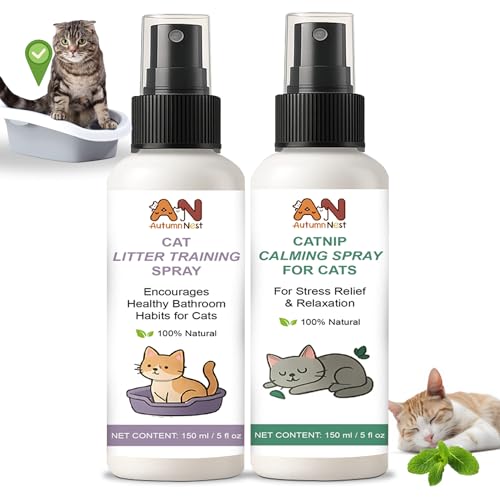Causes of the Cat Pee Odor
If you’re wondering why your house smells like cat pee, there are a few common causes that could be to blame. Don’t worry, we’ll explore these causes and help you find a solution to eliminate the smell.
- Marking Territory: Cats are known for spraying to mark their territory. This behavior is more common in unneutered or unspayed cats, but can also be seen in cats that feel threatened or stressed. If your cat is spraying, it’s important to address the underlying issues and provide a safe and secure environment for your furry friend.
- Litter Box Problems: A dirty or unappealing litter box can lead to improper elimination. Cats are very particular about their litter box hygiene, so make sure to clean it regularly and provide enough litter boxes for all your cats. If your cat refuses to use the litter box, it may be worth trying different types of litter or seeking advice from a veterinarian.
- Urinary Tract Infections: Sometimes, a cat pee odor can indicate a urinary tract infection. This is a common health issue in cats and can cause discomfort and inappropriate urination. If you suspect a urinary tract infection, consult with your veterinarian for proper diagnosis and treatment.
- Accidents and Sprinkles: Even the most well-behaved cats can have accidents or sprinkle outside the litter box occasionally. It could be due to a change in routine, stress, or certain medical conditions. Clean up accidents promptly to prevent the odor from lingering.
Remember, each cat is unique, and there may be other factors contributing to the cat pee odor in your home. Keeping a close eye on your cat’s behavior and addressing any issues promptly can help prevent future problems.
To summarize, the common causes of the cat pee odor can include marking territory, litter box problems, urinary tract infections, and accidents/sprinkles. Understanding these causes will guide you in finding the best solution to eliminate the smell and create a fresh-smelling home.
Next, we’ll explore some practical solutions to tackle the cat pee odor.
Understanding Marking Behavior in Cats
As a cat lover, you may have noticed that your house sometimes smells like cat pee. This can be quite frustrating, but it’s important to understand the reasons behind this behavior. One common cause of lingering cat pee odor is marking behavior in cats.
What is marking behavior?
Marking behavior in cats is when they use urine to communicate and establish their territory. Unlike when they use the litter box, marking behavior involves spraying urine onto vertical surfaces. This behavior is more common in adult cats, especially males who are not neutered, but females can also engage in marking behavior.
Why do cats mark their territory?
Cats mark their territory for a variety of reasons, including:
- Claiming their territory: Cats mark areas to let other cats know that this space is already taken.
- Advertising for mating: Unneutered males may mark to attract potential mates.
- Stress or anxiety: Cats may mark when they are feeling stressed or anxious, in an attempt to create a sense of familiarity and security in their environment.
How to address marking behavior
If your house smells like cat pee due to marking behavior, there are steps you can take to address the issue:
- Neuter or spay your cat: Getting your cat neutered or spayed can help reduce or eliminate marking behavior.
- Keep the litter box clean: A dirty litter box can cause a cat to seek alternative places to urinate. Regularly scoop the litter box and change the litter as needed.
- Provide multiple litter boxes: Cats may mark if they feel there aren’t enough litter boxes in the house. Ensure that you have enough litter boxes for each cat, plus an extra one.
- Create a positive environment: Reduce stress in your cat’s life by providing them with a safe and comfortable space, plenty of playtime, and opportunities to explore and engage with their surroundings.
By understanding marking behavior in cats and taking steps to address it, you can help minimize and eliminate lingering cat pee odor in your home. Stay tuned for more practical solutions in the next section, where we will explore Litter Box Problems.
Medical Conditions that Cause Urine-like Odor in the House
As a cat lover, it can be distressing to discover that your house smells like cat pee. While marking behavior is a common cause of the odor, there are also medical conditions that can contribute to this problem. Understanding these conditions is crucial for addressing the issue and ensuring the well-being of your feline friend.
Here are some medical conditions that may cause a urine-like odor in your home:
- Urinary Tract Infections (UTIs): Cats can develop UTIs, which can lead to a strong-smelling urine. If your cat is experiencing frequent urination, straining in the litter box, or blood in their urine, it’s important to consult a veterinarian for a proper diagnosis and treatment.
- Kidney Disease: Cats with kidney disease may have difficulty concentrating their urine, resulting in a strong odor. Other signs of kidney disease include increased thirst, weight loss, and decreased appetite. Prompt veterinary care is essential for managing this condition.
- Diabetes: Cats with uncontrolled diabetes may have elevated blood sugar levels, causing excess sugar to be excreted in the urine. This can result in a sweet-smelling odor. If you notice increased thirst, frequent urination, weight loss, or changes in appetite, it’s crucial to seek veterinary attention.
- Feline Lower Urinary Tract Disease (FLUTD): FLUTD is a common condition in cats and can cause a variety of symptoms, including inappropriate urination and an ammonia-like smell. FLUTD can be caused by factors such as stress, urinary stones, or inflammation. Prompt veterinary care is necessary to determine the underlying cause and provide appropriate treatment.
To address the urine-like odor caused by medical conditions, it’s essential to consult with a veterinarian. They will perform a thorough examination, run diagnostic tests if necessary, and develop a treatment plan tailored to your cat’s specific needs.
Remember, your cat’s health should always be a top priority. By understanding and addressing any underlying medical conditions, you can help eliminate the lingering cat pee odor and ensure a happy and healthy environment for both you and your feline companion.
Identifying the Source of the Smell
If you’re wondering why your house smells like cat pee, it’s important to determine the source of the odor. Here are a few steps to help you identify where the smell is coming from:
1. Check for any accidents: Cats may occasionally have accidents outside of their litter box. Check carpets, rugs, furniture, and other areas where your cat may have urinated.
2. Look for marking behavior: Cats have a territorial instinct and may mark their territory by spraying urine. Look for vertical surfaces, such as walls or furniture legs, that may have been marked by your cat.
3. Assess your litter box: A dirty or improperly cleaned litter box can contribute to strong odors in your home. Make sure to regularly scoop and clean the litter box to keep it fresh and odor-free.
4. Consider any medical conditions: If the smell persists despite proper litter box maintenance, it’s worth considering whether your cat has any underlying medical conditions that could be causing the odor. Cats with urinary tract infections, kidney disease, diabetes, or feline lower urinary tract disease may exhibit strong-smelling urine.
Remember, identifying the source of the smell is crucial in addressing the issue effectively. By understanding where the odor is coming from, you can take the necessary steps to eliminate it and create a pleasant living environment for both you and your feline friend.
Stay tuned for the next section, where we’ll explore effective solutions to eliminate the lingering cat pee odor from your home.
Tips to Eliminate the Cat Pee Odor
Here are some useful tips to help you eliminate the cat pee odor from your house:
- Clean up accidents immediately: If you catch your cat peeing outside of the litter box, it’s important to clean it up right away. Use an enzymatic cleaner specifically designed for removing pet odors. This will help break down the proteins in the urine that cause the strong smell.
- Odor-neutralizing sprays: Consider using odor-neutralizing sprays or air fresheners in the areas where your cat has urinated. These products can help mask the odor while you work on eliminating it completely. Just make sure the spray you choose is safe for pets and doesn’t contain any harmful chemicals.
- Deep clean the affected areas: For stubborn cat pee odors, you may need to do a thorough deep cleaning of the affected areas. Use a mixture of water and vinegar to clean carpets, furniture, or other surfaces. Vinegar is known for its ability to neutralize odors, including cat urine. Be sure to test the solution on a small, inconspicuous area first to avoid any damage.
- Replace soiled items: If your cat has repeatedly urinated on certain items that can’t be fully cleaned, such as rugs or blankets, it may be best to replace them. Some materials can hold onto odors even after cleaning, so starting fresh with new items can help eliminate the lingering smell.
- Maintain a clean litter box: A clean litter box is essential in reducing the chances of your cat peeing outside of it. Scoop the litter box daily to remove any waste, and completely change the litter at least once a week. Consider using a litter that is specifically designed to control odors.
Remember, it’s important to identify and address the root cause of the cat pee odor to prevent it from happening again. If your cat continues to have accidents or exhibit inappropriate elimination behavior, consult with your veterinarian to rule out any underlying medical conditions. With patience and persistence, you can create a fresh and odor-free living environment for both you and your beloved feline companion.
Conclusion
By following the steps outlined in this article, you can identify the source of that unpleasant cat pee odor in your home. Remember to check for accidents, look for marking behavior, assess the litter box, and consider any underlying medical conditions. Once you’ve identified the source, it’s important to take action to eliminate the odor.
To get rid of the cat pee smell, promptly clean up accidents using odor-neutralizing sprays and deep clean affected areas with vinegar. Replace any soiled items and maintain a clean litter box to prevent future odor issues. Remember, addressing the root cause of the odor is crucial, so don’t hesitate to consult with a veterinarian if needed.
With these tips and strategies, you’ll be able to say goodbye to that lingering cat pee smell and enjoy a fresh-smelling home once again. Don’t let the odor linger any longer – take action today and create a clean and pleasant environment for you and your furry friend.
Frequently Asked Questions
Q: How can I identify the source of cat pee odor in my home?
A: To identify the source of the cat pee odor, start by checking for accidents, looking for marking behavior, assessing the litter box, and considering any underlying medical conditions.
Q: How can I eliminate cat pee odor?
A: To eliminate cat pee odor, clean up accidents immediately, use odor-neutralizing sprays, deep clean affected areas with vinegar, replace soiled items, and maintain a clean litter box.
Q: Should I address the root cause of the odor?
A: Yes, it is important to address the root cause of the cat pee odor. This might involve modifying the cat’s behavior, addressing any medical conditions, or consulting with a veterinarian if necessary.

















